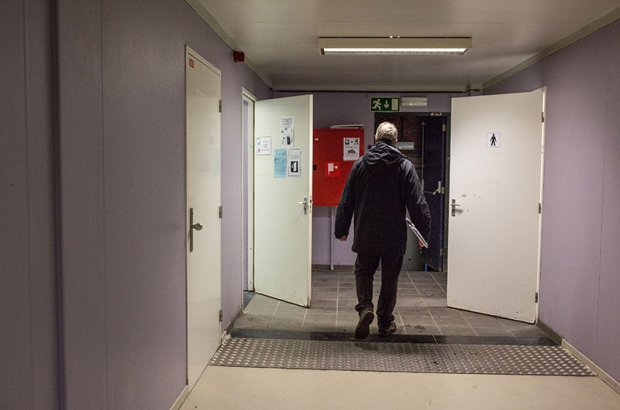- Daily & Weekly newsletters
- Buy & download The Bulletin
- Comment on our articles
Half of Fedasil refugee centres fail to meet standards
Of the 105 reception centres for asylum seekers in Belgium, one fifth fails to meet the minimum standards that agency Fedasil imposes on itself and other operators, new figures have revealed.
Among the 40 reception centres operated by Fedasil itself, half do not meet the minimum standards, according to figures requested by De Standaard.
Those standards maintain that each resident must have at least 4m² of sleeping space and each room must be at least 8m² in size. Each family must have a separate room.
Last year, in half of the centres operated by Fedasil itself, several families shared a room, which Fedasil spokesperson Benoit Mansy said was sometimes the only way to guarantee that every family can be accommodated.
A recent report by the Children's Rights Commission denounced the conditions in Belgium’s centres.
“We take the report very seriously and are in close consultation with Fedasil on this matter,” said asylum minister Anneleen Van Bossuyt (N-VA), adding that the asylum reception network pays a lot of attention to the welfare of the most vulnerable while acknowledging that conditions are not ideal everywhere.
“This is a consequence of the prolonged pressure on reception centres in recent years. Thanks to our crisis measures in recent months, the influx is decreasing and the pressure is finally easing.
"This will eventually create more space for high-quality reception for those who are entitled to it. When reducing the number of reception places, we will also take vulnerable profiles such as children into account. In the future, they will be accommodated in smaller and more suitable centres."
Fedasil said it was also struggling to meet the requirement for separate accommodation of unaccompanied minors, the cleanliness of the rooms and common areas, and had difficulties with outdated infrastructure and child safety in older buildings.
An annual inspection is followed by a report with concrete recommendations. The agency also identifies the centres with the highest risks, then tries to tackle these as a priority.
Fedasil cannot say how often the standards are not met in how many centres, nor can the exact minimum standards be disclosed: annual reports are not available for inspection.
Information about the situation in the 65 other centres run by external partners is difficult to obtain and is seemingly intended for internal use.



















